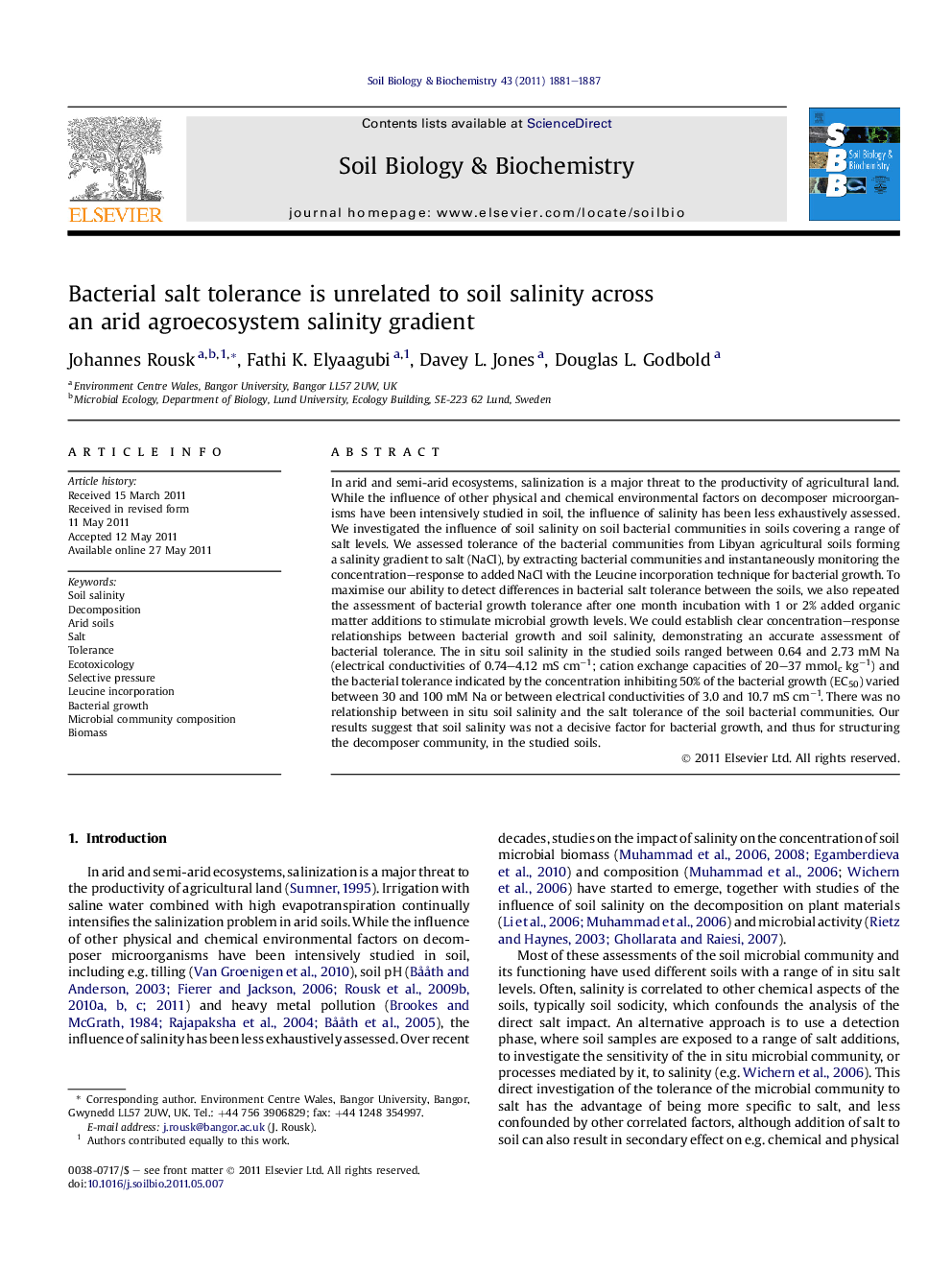| Article ID | Journal | Published Year | Pages | File Type |
|---|---|---|---|---|
| 2025247 | Soil Biology and Biochemistry | 2011 | 7 Pages |
In arid and semi-arid ecosystems, salinization is a major threat to the productivity of agricultural land. While the influence of other physical and chemical environmental factors on decomposer microorganisms have been intensively studied in soil, the influence of salinity has been less exhaustively assessed. We investigated the influence of soil salinity on soil bacterial communities in soils covering a range of salt levels. We assessed tolerance of the bacterial communities from Libyan agricultural soils forming a salinity gradient to salt (NaCl), by extracting bacterial communities and instantaneously monitoring the concentration–response to added NaCl with the Leucine incorporation technique for bacterial growth. To maximise our ability to detect differences in bacterial salt tolerance between the soils, we also repeated the assessment of bacterial growth tolerance after one month incubation with 1 or 2% added organic matter additions to stimulate microbial growth levels. We could establish clear concentration–response relationships between bacterial growth and soil salinity, demonstrating an accurate assessment of bacterial tolerance. The in situ soil salinity in the studied soils ranged between 0.64 and 2.73 mM Na (electrical conductivities of 0.74–4.12 mS cm−1; cation exchange capacities of 20–37 mmolc kg−1) and the bacterial tolerance indicated by the concentration inhibiting 50% of the bacterial growth (EC50) varied between 30 and 100 mM Na or between electrical conductivities of 3.0 and 10.7 mS cm−1. There was no relationship between in situ soil salinity and the salt tolerance of the soil bacterial communities. Our results suggest that soil salinity was not a decisive factor for bacterial growth, and thus for structuring the decomposer community, in the studied soils.
Graphical abstractThe bacterial tolerance to salt was not related to the in situ soil salinity, indicating that the direct influence of salt was not an important ecological factor for structuring the bacterial communities in the studied agricultural soils.Figure optionsDownload full-size imageDownload as PowerPoint slideHighlights► Salinization is a major threat to the productivity of agricultural land. ► We assessed salt tolerance of the bacterial communities from a salinity gradient. ► We determined concentration–response relationships to estimate tolerance. ► There was no relationship between soil salinity and tolerance for bacteria. ► Soil salinity was not an ecologically important factor for bacterial growth.
